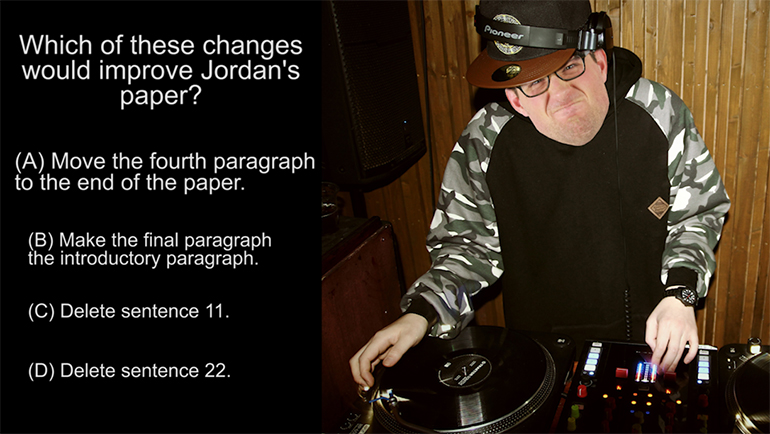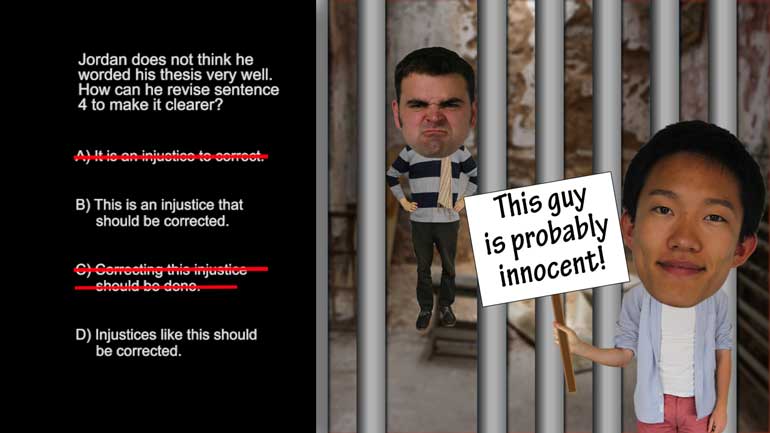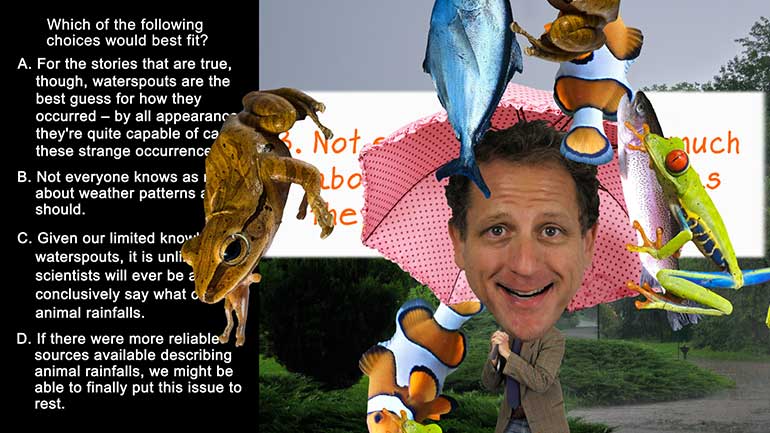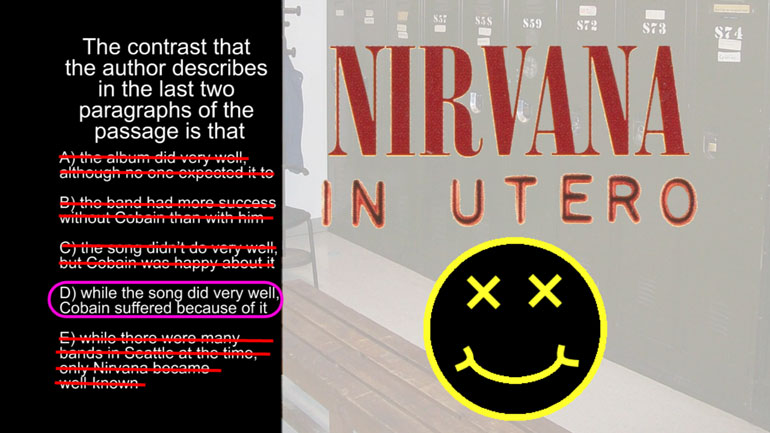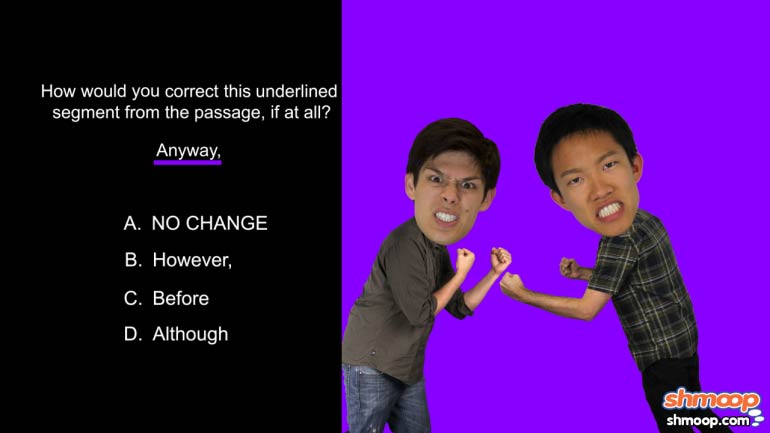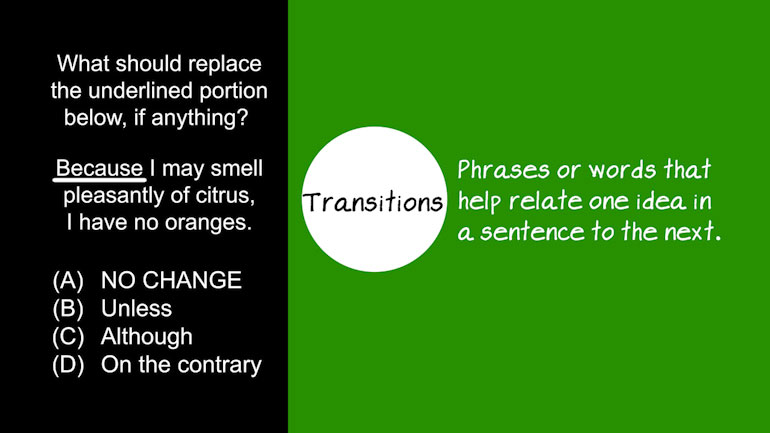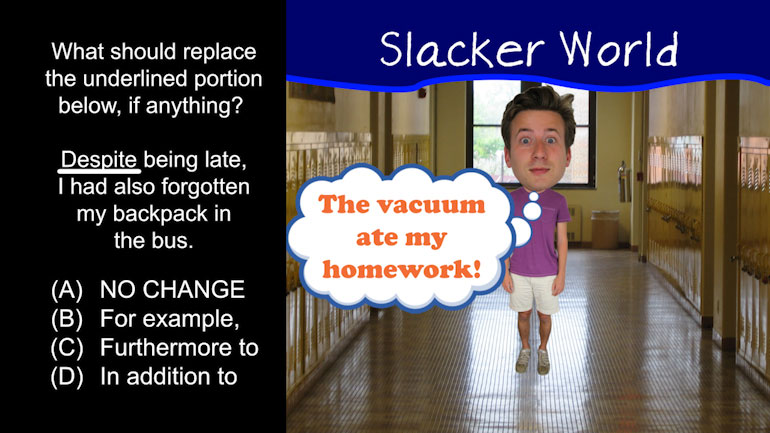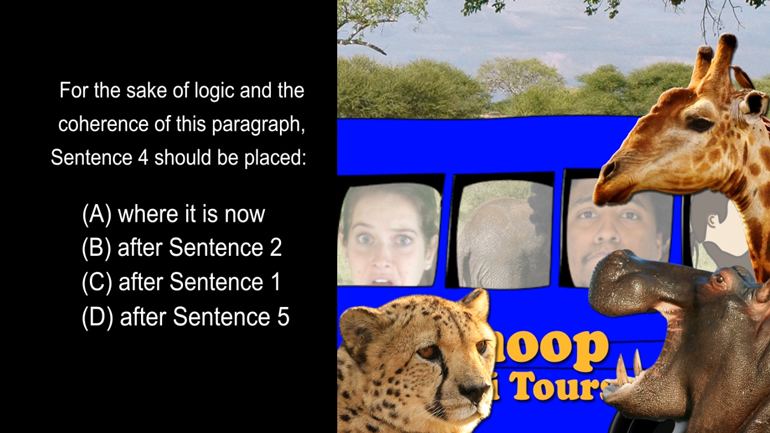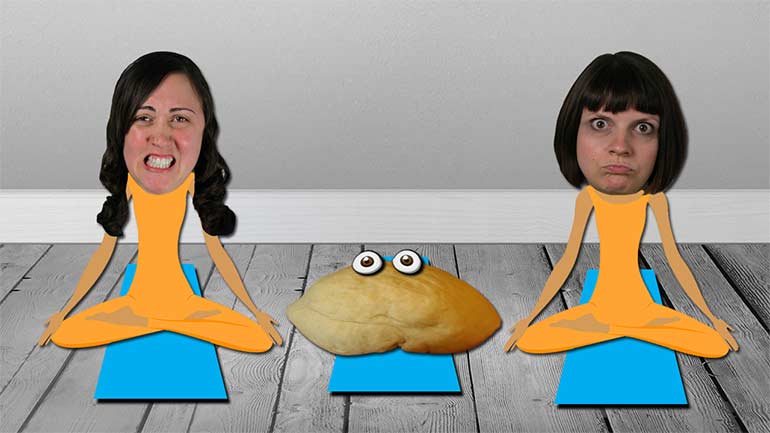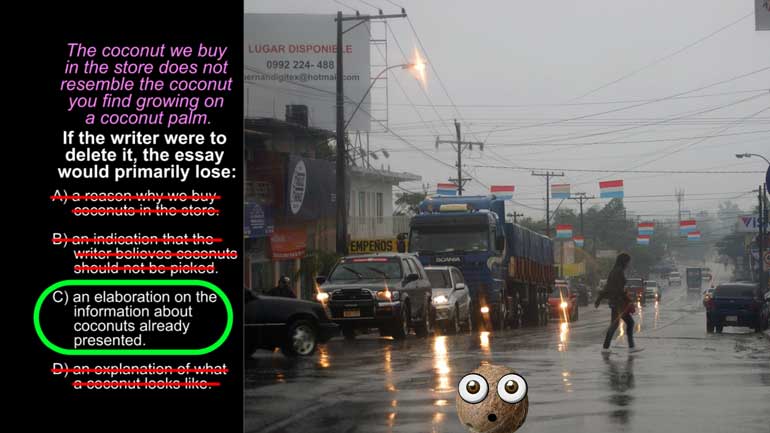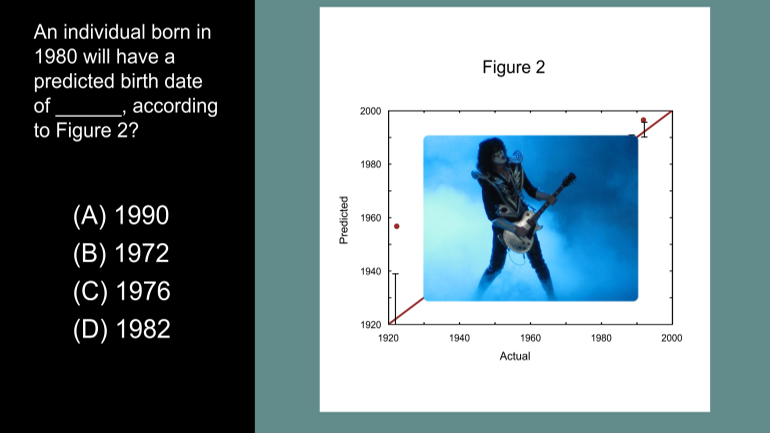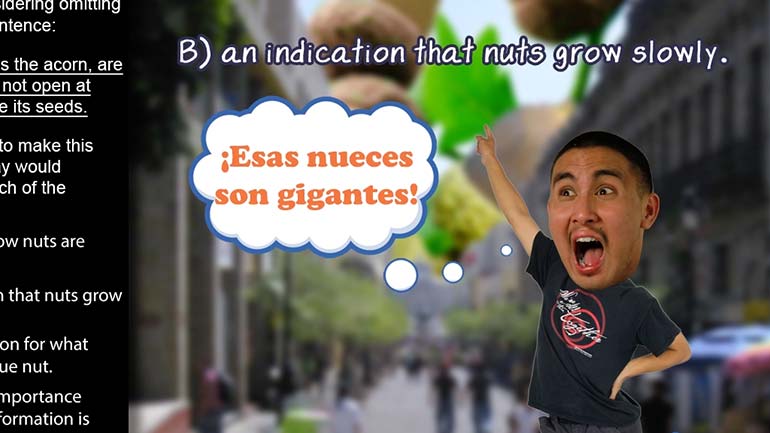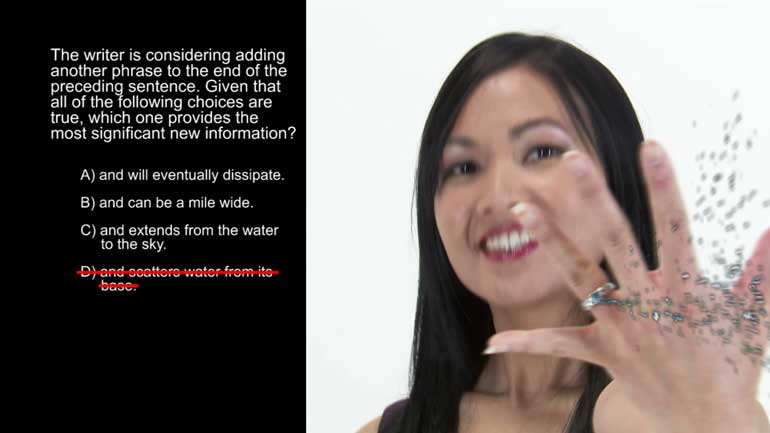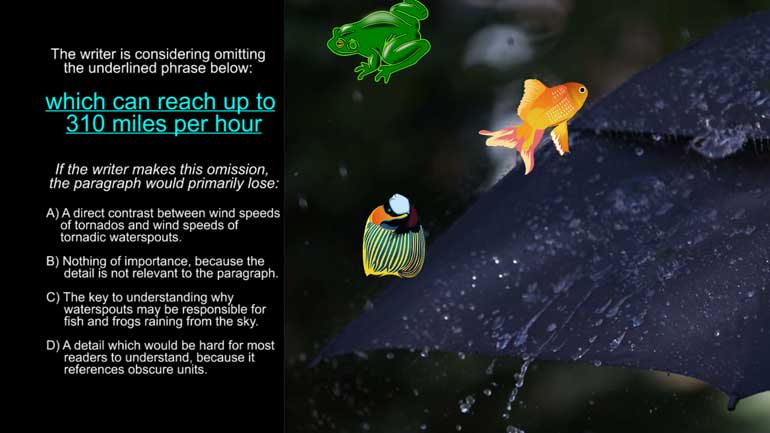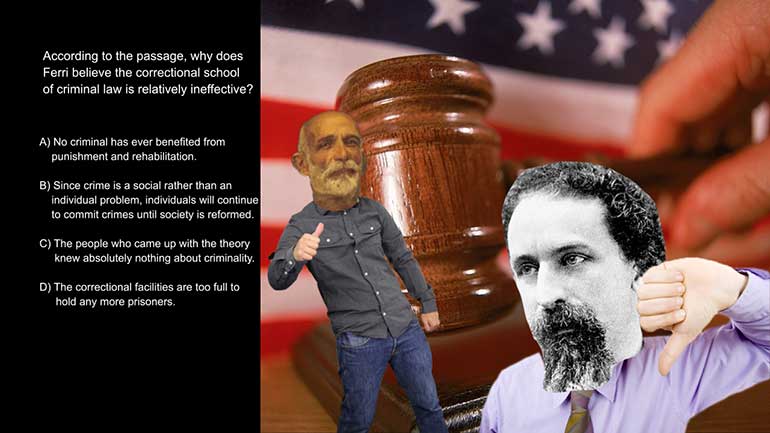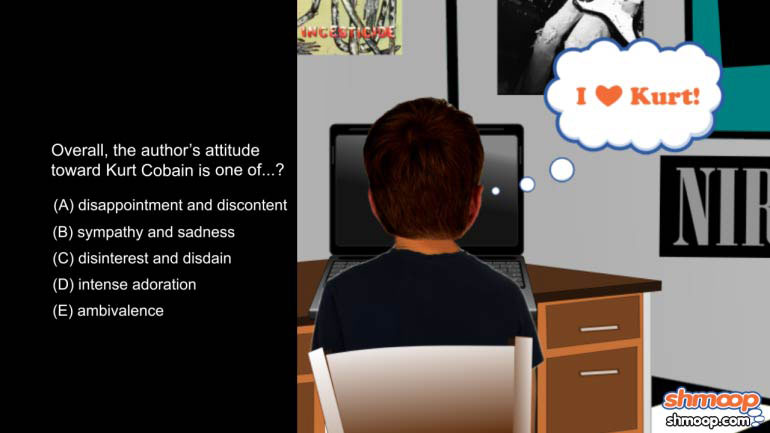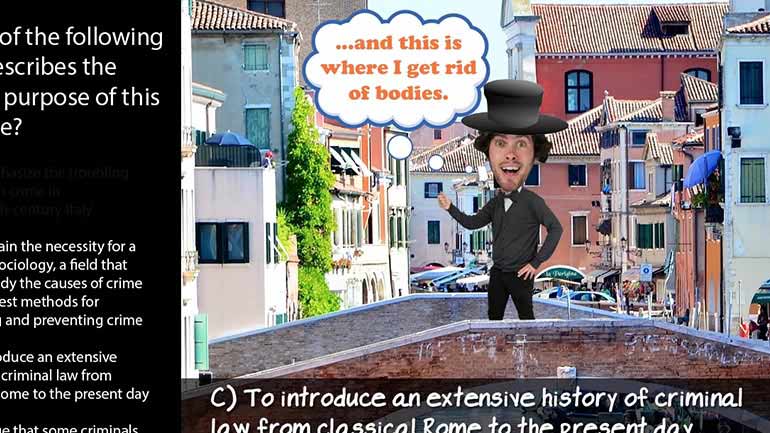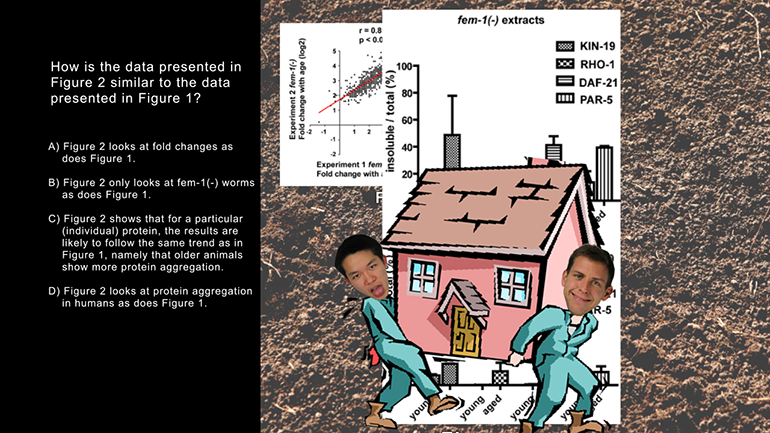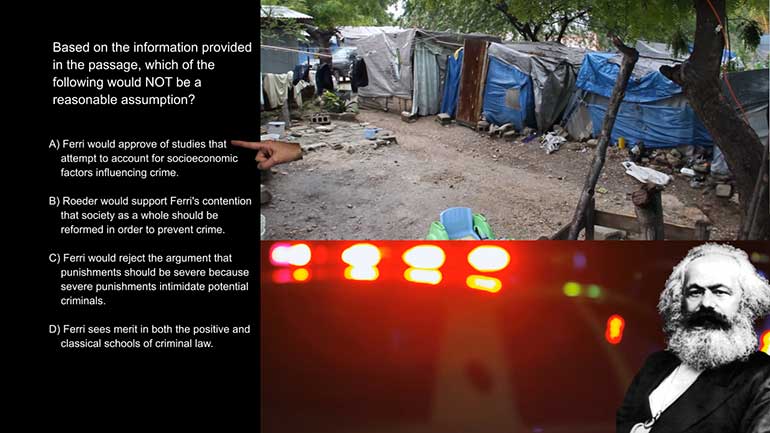ShmoopTube
Where Monty Python meets your 10th grade teacher.
Search Thousands of Shmoop Videos
Revision Videos 47 videos
Want to pull an Oliver Twist and ask us for more? We've gotcha covered. Click on this link for more Texas EOC goodness. Porridge not included.
ACT English 4.6 Passage Drill 174 Views
Share It!
Description:
ACT English: Passage Drill 4, Problem 6. Which word creates the most logical transition between the two sentences?
Transcript
- 00:03
Here’s your Shmoop du jour, brought to you by confused timelines.
- 00:07
So we’ve been waiting a while for this one. Check out the following passage...
- 00:19
How would you correct this underlined segment from the passage, if at all? Anyway,?
- 00:25
And here are the potential answers...
- 00:28
Here, we need to find the word that creates the most logical transition between the two sentences.
Full Transcript
- 00:33
In order to do this, we have to have a firm idea of what each sentence is
- 00:36
trying to get across.
- 00:37
We’ll take a quick glance back at the passage to get it fixed in our heads.
- 00:41
OK, so this is easy. The first sentence informs us that a lot of people think Hagiwara created
- 00:45
fortune cookies, while the second sentence says that a bunch of other people think a
- 00:49
dude named Jung had the honor.
- 00:51
Looks like these two sentences are butting heads.
- 00:54
So we’re on the hunt for a word that helps to establish this contrasting relationship.
- 00:59
Option (A) suggests the word “anyway,” but this doesn’t get across the meaning we need.
- 01:03
“Anyway” is usually used when a writer wants to move on to a new topic,
- 01:07
not when a writer is contrasting two connected ideas.
- 01:10
Anyway, now it’s time to check out option (C).
- 01:13
See what we did there?
- 01:14
Yeah, yeah...we’re not as clever as we’d like to be.
- 01:16
(C) gives us the word “before.” This doesn’t work either, though. The sentence talks about
- 01:20
how people “still hold” to a certain idea.
- 01:23
If the sentence is trying to talk about how people are still doing something, then throwing
- 01:27
the word “before” in there does nothing but confuse the timeline.
- 01:31
(D) is incorrect because "although” is what’s known as a subordinating conjunction.
- 01:37
When this type of conjunction appears before a clause, it makes that clause subordinate to another.
- 01:42
Subordinate clauses can’t exist on their own and need a main clause to hang on to.
- 01:47
If we kick off the sentence in question with “although,” it turns the entire thing
- 01:51
into a subordinate clause with no main clause to hold hands with.
- 01:54
This prospect makes us sad, so we’ll nix option (D).
- 01:57
The correct answer is (B).
- 01:59
It’s totally OK to kick off a sentence with the word “however,”
- 02:03
and the word signals contrast, making it perfect for what the writer wants to communicate.
- 02:08
When we see “however” at the top of a sentence, we know that sentence is going to
- 02:12
disagree with the sentence that came before it.
- 02:15
When will these sentences learn to get along?
Related Videos
ACT English: Punctuation Drill 2, Problem 2. Where should the semi-colon be placed?
ACT English: Punctuation Drill 3, Problem 1. How should this sentence be changed so that it is grammatically correct?
ACT English: Punctuation Drill 3, Problem 2. How should we properly hyphenate the words in this sentence?
ACT English: Punctuation Drill 3, Problem 4. Which choice best formats this list of items?
ACT English: Punctuation Drill 2, Problem 1. Which choice of punctuation best completes the sentence?

